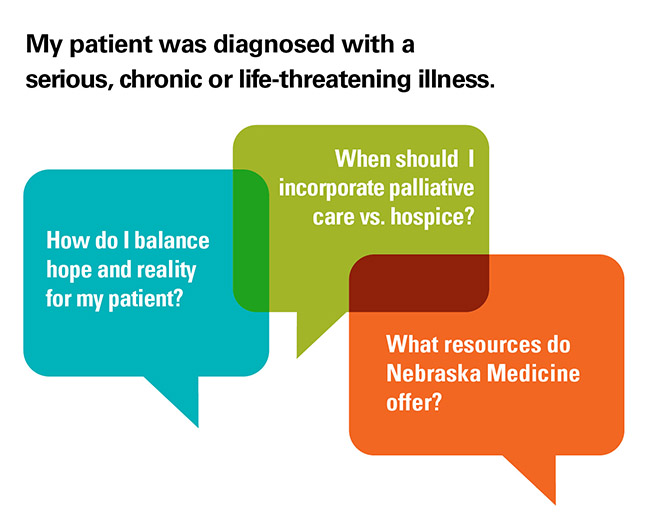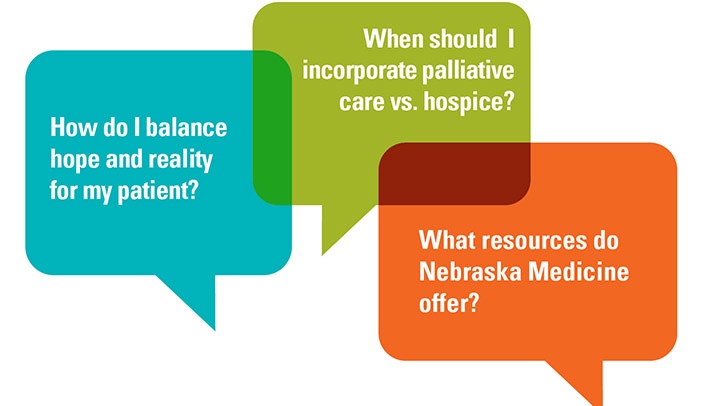 |
What goes through your mind when you hear the words “palliative care?”
Some might respond with “end of life” and many others might say “hospice.” But as palliative care providers will tell you, it’s much more than that. And it requires taking a long view of a patient, stepping back and having an important discussion.
Palliative care discussion
When: Wednesday, Feb. 5 from noon to 1 p.m.
Where: Durham Research Center 1, Room 1002
Who: All care team members are invited.
Attend the meeting via Zoom.
Learn more.
“We want all providers to know they can start the conversation,” said Carri Siedlk, nurse practitioner, Nebraska Medicine Department of Palliative Care.
Often, though, in busy hospital settings, a provider is focused on treating the patient’s acute problem.
“It takes both practice and time to have these difficult conversations,” Siedlik said. “We encourage providers to take a bigger-picture perspective when treating a patient with a chronic or life-threatening illness. One intervention often leads to another intervention and sometimes the patient’s prognosis as well as their values get lost.”
“It’s about considering where the patient is and where they may be in the future versus simply discussing what we can fix now,” said Remy Kaslon, nurse practitioner in palliative care. “Look at all the pieces, not just the acute pieces, to help guide decisions.”
The palliative care team knows well those conversations are not easy. That’s one reason it is hosting a panel discussion on Wednesday, Feb. 5, to tackle difficult topics such as how to balance hope with reality and how to approach the conversation.
“We want all providers to understand they have the skills to do this work and we want to help improve them,” Kaslon said. “We know many are afraid to have this discussion and when to recognize the time is right. We also want providers to have a better understanding of when to incorporate palliative care. It’s not just dying and hospice.”
Kaslon said the palliative care consult team has specialized education and training in communication when complicated situations arise or when patients need more time than the primary provider can realistically give. Examples include when family members disagree on next steps, when the patient wants something different than the family, or when a patient is being pressured by a family member.
The inpatient palliative care team is comprised of five advanced practice providers and one dedicated social worker and care transitions nurse. The outpatient palliative care team has one physician and an advanced practice provider.
“It’s the right thing to do for our patients,” Siedlik said. “It’s not easy talking about the hard stuff. We’re passionate about what we do and we want to help providers expand their skills and understanding of what resources are available to them.”
